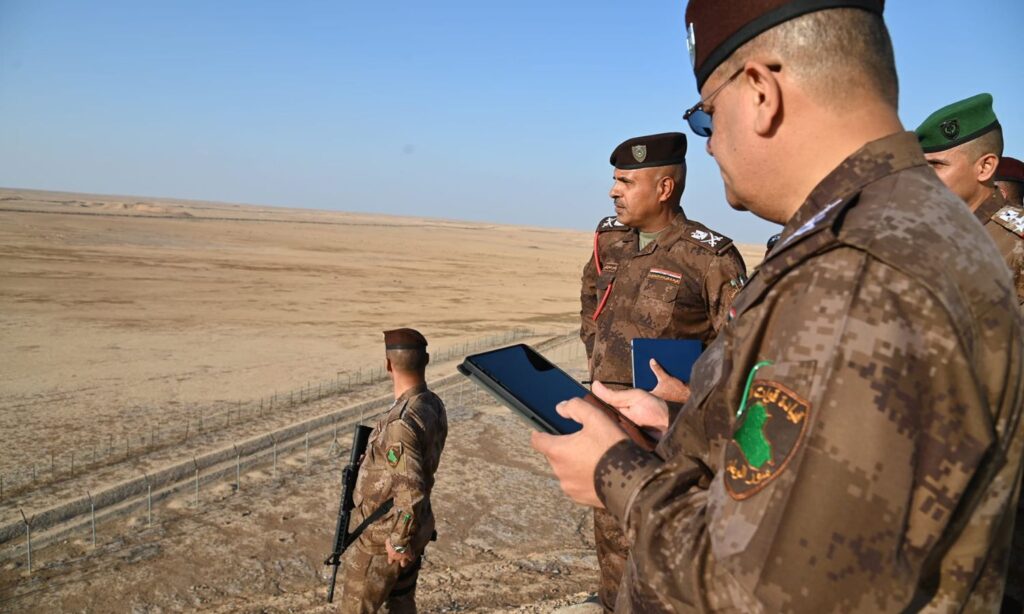The Iraqi Ministry of Interior announced on Tuesday, November 5, a plan to expand the construction of a concrete wall on the border between Iraq and Syria.
The commander of the Iraqi border forces, Muhammad Abdul Wahab Sukkar, stated that the plan includes building a concrete wall extending more than 100 kilometers, north and south of the Euphrates River, between the Turaifawi area in western Anbar province across from the city of al-Bukamal in the countryside of Deir Ezzor.
This is the second such measure taken by Baghdad after completing a security concrete wall and barbed wire at the end of last year between the town of Rabi’a and the city of Sinjar in Nineveh Province opposite the city of al-Hasakah controlled by the Syrian Democratic Forces (SDF).
Sukkar added that the construction of the concrete wall, along with a series of other security fortifications between Nineveh and al-Hasakah, “contributed to achieving a significant control over the Iraqi-Syrian border, unprecedented in the history of the Iraqi state.”
The Iraqi Ministry of Interior’s statement mentioned that the commander of the border forces visited the 7th Border Brigade and the Commando Brigade in the Turaifawi area of western Anbar province in preparation for starting the construction of the concrete wall separating the Syrian and Iraqi borders.
In recent years, the Iraqi government has taken several measures to secure its borders with Syria, including installing thermal cameras, digging trenches, and erecting a concrete wall to prevent the infiltration of “terrorists.”
The Ministry of Interior has strengthened the Border Protection Command in the past two years and has set up a number of outposts at various border points, after the Cabinet allocated 10 billion Iraqi dinars in 2023 to enhance border security.
The Iraqi Minister of Interior, Abdul Amir al-Shammari, stated during a televised interview with the Iraqi Al-Rabiaa channel in November 2023 that the reasons for building a concrete wall with Syria stem from the fact that Iraq is not facing a nation on the other side of the border, but rather “militias.”
He added that the Islamic State group still spreads in the area, and Iraq remains concerned about the possibility of border breaches, followed by armed groups crossing into Iraqi territory from Syria, unlike the borders that connect Iraq with other countries where such possibilities are not present.
Iraq officially launched a project in 2020, with Western support, to secure the border with Syria adjacent to Anbar and Nineveh provinces, which still witness infiltration operations, as well as drug smuggling activities coming from Syrian territories.
Iraq shares four official crossings with Syria: Simalka in the al-Khabour area of Duhok province, Rabia, which connects Nineveh and al-Hasakah provinces, and the al-Bukamal-al-Qaim and al-Walid-al-Tanf crossings that connect Anbar and Deir Ezzor.

